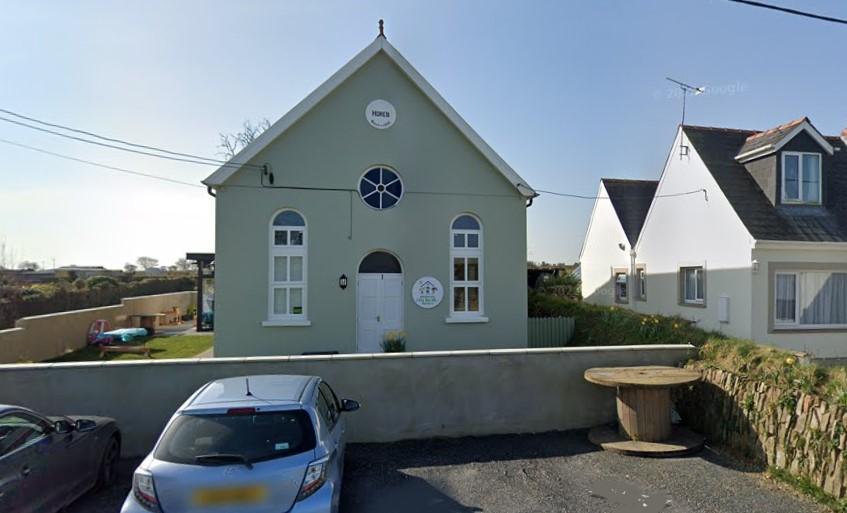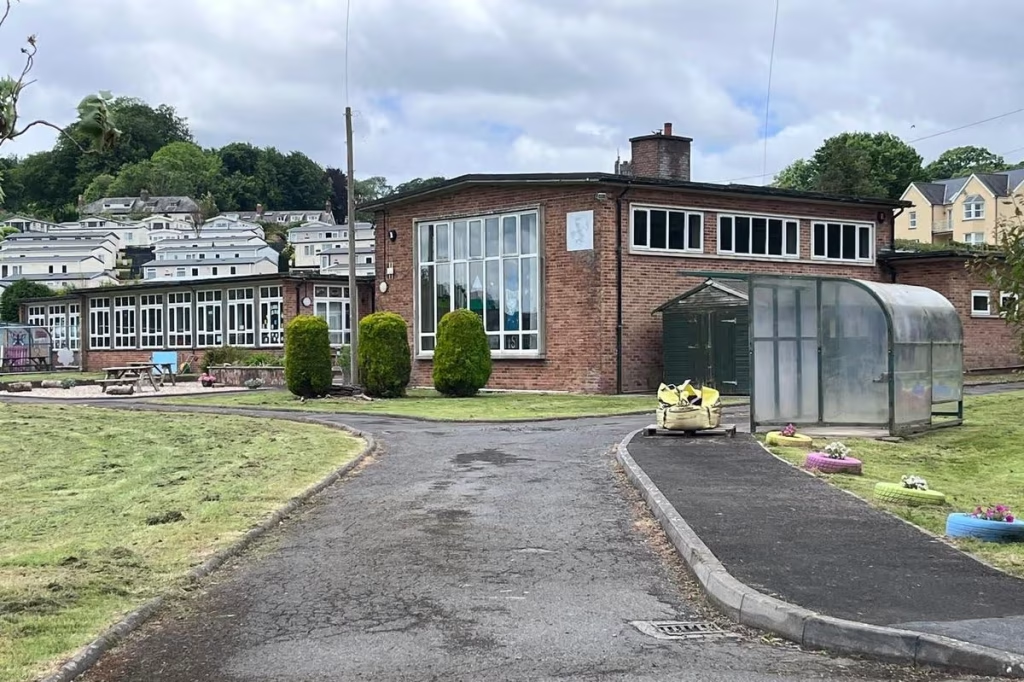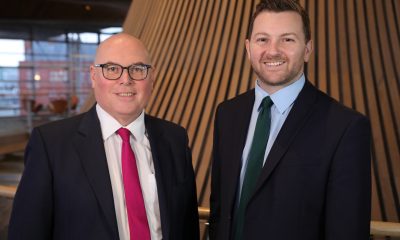Education
40 percent of teachers say the education sector is ignoring employee health

FOLLOWING recent strikes, a new study also finds 1 in 4 teachers have worked whilst physically or mentally unwell
More than 2 in 5 teachers reported the education sector is either passively or actively failing to look after employee physical health (44%) and employee mental health (41%), new data has revealed.
Teachers are the most likely employees to work through physical illness, with almost a quarter (24%) having done so in the last year. The data also shows that more than 1 in 4 teachers have worked whilst mentally unwell.
Pressures such as Ofsted inspections, excessive workloads, and low pay during the current cost of living crisis – combined with gaps in employer support – are causing an increase in mental and physical health issues for teachers. Over three-quarters (76%) said they’ve experienced at least some decline in physical or mental health due to their work. Some 40% reported increased anxiety and 24% cited back/neck pain.
A new study asked over 1,000 employees for insights into their health over the last year. The aims were to discover how changing working patterns are affecting employees’ health and wellbeing, and see how UK companies can better support their workforce in this area.
The study also found that teachers are picking up quick-fix habits to cope, which are negatively impacting their physical and mental health. 35% of teachers are eating more unhealthy food and almost a fifth (17%) have been drinking alcohol more frequently over the last 12 months.
What can the education sector do?
- A staggering 85% of teachers want their company to be more proactive in boosting employee health, wellbeing and healthy habits.
- 36% of teachers want managers trained to provide better mental health support and prevent stressful work environments
- 36% believe in promoting the use of sick leave when people are struggling with physical or mental health
- 26% of teachers want training in stress management
The education sector also benefits from contributing to teachers’ health and wellbeing: it leaves 42% of teachers feeling more productive at work. When supported, almost 2 in 5 (39%) report feeling engaged with their work and 37% say they’re less likely to seek job opportunities elsewhere.
Claire Brown, qualified life and career coach, says: “Employees must be encouraged to prioritise their health and wellbeing above productivity, by taking regular breaks from the screen and getting fresh air, where possible. Providing alternative and innovative ways for connection and communication between team members is also really valuable.
“Additionally, by adopting a flexible attitude and approach to how and when work is completed, companies can alleviate some of the pressure. As always, communication is key. It’s important for employers to be fair and realistic about what is possible and provide practical support to help team members manage their workloads.”
Community
Letterston nursery equipment could be stored in cemetery

A CALL for a storage container for a “well-established and valued” Pembrokeshire children’s nursery in a nearby cemetery has been submitted to county planners.
In an application to Pembrokeshire County Council, Diane Evans of Meithrinfa Do Re Mi Nursery seeks permission for the installation of a storage container, partially in retrospect, at Horeb Cemetery, Station Road, Letterston.
A supporting statement says: “The container is required to provide essential ancillary storage to support the lawful and established nursery use within the [nearby] chapel building.
“The site forms part of an active cemetery, owned and managed by a group of trustees. The applicant is one of the trustees and has obtained formal permission from the trustees for the container to be sited on this land. The area selected previously comprised a large, longstanding mound of garden waste which has now been removed. The land has been levelled and prepared with a hard-standing base.
“The container will be used solely for storage of nursery equipment and materials, including outdoor learning resources, maintenance equipment, and items required to manage both the nursery grounds and the cemetery land. No additional operational activity will take place within or around the container.”
It adds: “The day nursery provides childcare for approximately 83 children from the local community and employs 21 staff, all of whom live locally. The nursery is a well-established and valued community facility, supporting local families and contributing positively to the local economy. Adequate storage is essential to ensure the safe, efficient and compliant operation of the nursery. The chapel building itself has limited internal storage, making external ancillary storage necessary.”
It says the nursery “operates with a strong community focus and promotes sustainability and environmental awareness,” with plans to soften its appearance through the planting of trees, shrubs and flowers.
It added: “Children will take part in a ‘sow, grow and give’ project, growing cut flowers from seed. These flowers will be made available to the community, particularly visitors to the cemetery, who will be invited to cut flowers to place on the graves of loved ones. This initiative enhances biodiversity, strengthens community links, and adds social value to the cemetery space.”
The application will be considered by county planners at a later date.
Education
Parents urge council not to close Ysgol Llansteffan

Campaigners call for delay amid Welsh language investigation and rising pupil numbers
PARENTS and campaigners have urged Carmarthenshire County Council’s Cabinet not to recommend the closure of Ysgol Llansteffan when members meet on Monday (Feb 23).
The appeal comes ahead of a proposed decision that could see the village’s Welsh-medium primary school close in August this year.
The Ysgol Llansteffan Parents and Teachers Association (PTA), supported by Cymdeithas yr Iaith, has written to councillors calling for the process to be halted, arguing that key evidence remains incomplete and that the case for closure is flawed.

Among their concerns is an ongoing investigation by the Welsh Language Commissioner into the language impact assessment used to support the closure proposal. Campaigners say it would be inappropriate for the council to make a final decision before the investigation is concluded.
They also claim no council decision-makers have visited the school to verify the information used in the proposal, despite significant changes in circumstances, including a rise in pupil numbers to 17 as of January 2026.
The PTA argues that this increase undermines earlier projections and raises questions about the reliability of longer-term forecasts used to justify closure.
Financial concerns have also been raised. While council documents suggest annual savings of around £112,000, campaigners say transport costs of approximately £50,000 per year and inflationary pressures have not been clearly accounted for, potentially overstating the net benefit.
Parents say closure would remove parental choice and risk damaging Welsh-medium education in the area by forcing some children to travel further or potentially move into English-medium provision.
Cymdeithas yr Iaith has backed the PTA’s call, warning that the council’s objection report failed to properly address concerns that insufficient school capacity elsewhere could push pupils out of Welsh-medium education altogether.
Campaigners have also criticised what they describe as factual inconsistencies in the council’s reports, including outdated enrolment figures and conflicting capacity estimates for neighbouring schools.
The PTA has asked the council to defer any decision until updated data is available, the Commissioner’s findings are published, and alternative options for sustaining the school have been fully explored.
In their letter, parents stressed they remain willing to work constructively with the council to develop a long-term solution that would allow the school to remain open as a sustainable Welsh-medium provision for the community.
Carmarthenshire County Council has previously said the proposal is intended to address falling pupil numbers, high surplus places and financial pressures at the school. Cabinet members were told earlier in the process that neighbouring Ysgol Llangain would have sufficient capacity to accommodate pupils if the closure proceeds, and that transferring learners would provide access to improved facilities and help ensure long-term sustainability of education provision in the area.
The final decision is expected to be taken by full council in March following the Cabinet’s recommendation.
Crime
Teacher stabbed by pupil criticises school weapon scanner plans

Victim says teachers should not be turned into “security guards” after Ammanford attack
A TEACHER who was stabbed multiple times by a pupil at a Carmarthenshire school has criticised proposals to introduce weapon scanners in classrooms, warning they risk shifting responsibility onto already overstretched staff.
Liz Hopkin was attacked by a teenage student at Ysgol Dyffryn Aman, Ammanford, in April 2024, in an incident that shocked communities across Wales.
Speaking to BBC Radio Wales, Ms Hopkin said she does not believe scanners are “the answer” to preventing violence in schools and warned they could undermine relationships between teachers and pupils.
She said the focus should instead be on preventing young people from bringing weapons to school in the first place.
“This isn’t about preventing people bringing knives into school in the first place. This is just about detection,” she said.
“If by the time you’ve got the knife in school, you’ve missed so many opportunities prior to that to stopping that knife coming in in the first place.”
Ms Hopkin also warned that introducing scanning responsibilities could place teachers in unsafe and inappropriate situations.
“To stop putting the responsibility onto schools — we already have enough responsibility with less and less and less resources,” she said.
“You’re adding the role of security guard to teachers who are trying to build relationships with young people.”
Despite suffering serious injuries in the attack, she said she still did not believe scanners were the right approach.
“In my own head, as somebody who’s been right at that point where I’ve been stabbed — I was stabbed five times and feared that I would die — I still don’t think it’s a good idea,” she said.
The Welsh Government told the BBC that its work around weapons in schools forms part of a wider strategy to improve behaviour, with a strong emphasis on prevention rather than enforcement.
Officials said any decision to use scanners would be made by individual local authorities, and there is no expectation that teachers or school staff should carry out security duties.
Some councils have already trialled handheld scanners. Cardiff Council has supplied them to schools, but they are only used when there is a clear concern a pupil may be carrying a weapon.
The stabbing at Ysgol Dyffryn Aman led to renewed debate about school safety across Wales, including behaviour management, pupil support services, and funding pressures facing education.
Ms Hopkin added: “I would never ever suggest that anybody put themselves at risk to check. That’s not our role.”
(Image: BBC)
-

 Health5 days ago
Health5 days agoWithybush loses emergency surgery in shock health board decision
-

 Health5 days ago
Health5 days agoHealth board confirms major hospital changes across west Wales
-

 Health4 days ago
Health4 days agoConcerns grow over Bronglais stroke plans as politicians demand clarity
-

 Health5 days ago
Health5 days agoHealth board: Changes will bring “resilience and sustainability” to West Wales services
-

 Local Government2 days ago
Local Government2 days agoCandidate who withdrew from Hakin race will still appear on ballot paper
-

 Business7 days ago
Business7 days agoMS’s host business advice surgery following demand from Business Rates Online Forum
-

 Crime7 days ago
Crime7 days agoTeen given community order after assaulting police officer at hospital
-

 Local Government7 days ago
Local Government7 days agoIndependent group threatens to oppose council tax plans over education cuts


























